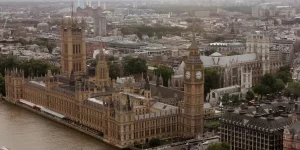The Business, Energy and Industrial Strategy (BEIS) Select Committee has published its pre-legislative scrutiny report into the energy price cap draft Bill. It has broadly agreed with the Government on the policy of an absolute price cap, however it has raised some points for clarification as well. For example, on the conditions under which the cap should be lifted. Stakeholders will have the opportunity to influence these points as the Bill begins its progress through Parliament, provided they properly engage with parliamentarians.
The BEIS Committee has broadly endorsed a price cap.
Expressing concern that the energy market is currently failing to effectively protect consumers, with switching rates too low and the difference between standard variable tariffs and other tariff prices too high, the BEIS Committee has called for a temporary absolute price cap on standard variable and default tariffs.
The BEIS Committee decided on an absolute as opposed to a relative price cap as it assessed there to be less risk an absolute cap would push suppliers to raise their prices. The Committee also believed an absolute cap would best achieve ‘the Bill’s key goals: improving fairness and reducing the overcharging of standard variable and default tariff customers.’[1]
Ofgem will set the level of the cap. To ensure Ofgem remains committed to setting the cap at an appropriate level [2], the BEIS Committee recommends amending the draft Bill to stipulate that Ofgem reviews the level of the cap every six months.
The BEIS Committee has asked the Government to clarify its approach to green energy, reviewing of the price cap and conditions for a competitive market.
The BEIS Committee believes customers who actively choose to pay extra for green energy should be able to do so. While the current draft Bill includes exemptions for green energy tariffs [3], the BEIS Committee recommends adding exemptions for green gas to avoid potential confusion regarding dual-fuel and gas tariffs.
The BEIS Committee also stressed the need to strengthen the definition of ‘green tariffs.’ It has asked the Government to make clear in amendments to the draft Bill that suppliers offering green tariffs which do not provide substantial economic benefits will be in breach of legislation. [4]
Despite criticising Ofgem for being ‘too slow and reluctant to use its extensive powers to step in and protect the interests of customers, especially vulnerable customers,’ [5] the Committee noted its trust in Ofgem to implement the cap and set its level to meet requirements. To ensure Ofgem remains committed to setting the cap at an appropriate level, the BEIS Committee recommends amending the draft Bill to stipulate that Ofgem reviews the level of the cap every six months.
The BEIS Committee concludes its report by asking the Government to clarify its long term plan to protect vulnerable energy consumers. The Committee agreed that the cap should be temporary but pushes the Government to offer further assurances that removing the cap will not bring back overcharging.
The Government hopes to pass the bill before summer recess.
The Government will hope that following the BEIS Committee’s report and pre-legislative scrutiny process, the draft Bill will have enough cross-party support to become law before the 2018 summer recess. Provided the Government addresses the issues highlighted by the Committee this should be possible. However, there are still discussions to be had on the conditions under which the temporary cap will be lifted, and the resultant shape of the competitive market. Stakeholders will have the opportunity to influence these discussions as the Bill proceeds through Parliament if they properly engage with Parliamentarians.
[1] BEIS Select Committee, Pre-legislative scrutiny of the draft Domestic Gas and Electricity (Tariff Cap) Bill, 13 February 2017, Summary, link
[2] Department for Business, Energy & Industrial Strategy, Draft Domestic Gas and Electricity (Tariff Cap) Bill, 12 October 2017, p2, link
[3] Department for Business, Energy & Industrial Strategy, Draft Domestic Gas and Electricity (Tariff Cap) Bill, 12 October 2017, pp2-3, clause 3, link
[4] BEIS Select Committee, Pre-legislative scrutiny of the draft Domestic Gas and Electricity (Tariff Cap) Bill, 13 February 2017, chapter 5, paragraph 68, link
[5] BEIS Select Committee, Pre-legislative scrutiny of the draft Domestic Gas and Electricity (Tariff Cap) Bill, 13 February 2017, Summary, link




